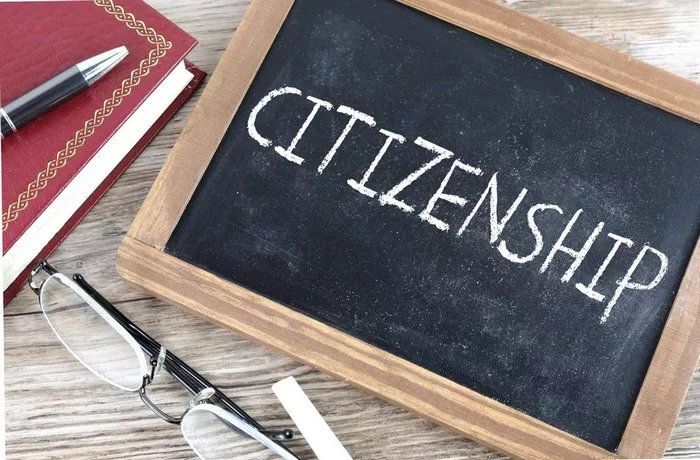Singapore, known for its economic prosperity, cultural diversity, and efficient governance, is a highly desirable destination for individuals seeking a better quality of life. With its robust infrastructure, excellent healthcare, and top-notch education system, it’s no wonder that many people aspire to become citizens of this prosperous island nation. However, the question remains: Is Singapore citizenship easy to obtain? In this comprehensive exploration, we delve into the intricacies of Singaporean citizenship, separating fact from fiction and shedding light on the process and criteria involved.
Understanding Singaporean Citizenship
Before delving into the ease or difficulty of acquiring Singaporean citizenship, it’s essential to understand the various pathways available for individuals seeking citizenship in the country.
Citizenship by Birth: Individuals born in Singapore to at least one Singaporean citizen parent are automatically granted citizenship.
Citizenship by Descent: Children born overseas to at least one Singaporean citizen parent are eligible for citizenship by descent.
Citizenship by Registration: Foreigners who have been residing in Singapore as Permanent Residents (PRs) for a specified period and meet certain criteria can apply for citizenship through registration.
Citizenship by Naturalisation: Foreigners who have been residing in Singapore as PRs for an extended period may apply for citizenship through naturalisation, subject to fulfilling specific requirements.
Dispelling the Myths
Myth 1: Singapore Citizenship is Only for the Elite
While Singapore has stringent criteria for citizenship, it’s not exclusively reserved for the wealthy or highly educated. The government assesses applicants based on factors such as their ability to integrate into Singaporean society, contribute economically, and uphold the country’s values. Financial status and educational background are considered, but they are not the sole determinants of eligibility.
Myth 2: Singapore Citizenship is Easy to Obtain for Foreigners
Contrary to popular belief, acquiring Singaporean citizenship as a foreigner is not a straightforward process. The government carefully evaluates each applicant’s suitability based on factors such as length of residency, employment stability, community involvement, and commitment to Singapore’s future. Additionally, applicants must demonstrate proficiency in English or one of the country’s official languages.
Myth 3: Marrying a Singaporean Citizen Guarantees Citizenship
While marriage to a Singaporean citizen can facilitate the immigration process, it does not guarantee citizenship. Spouses of Singaporean citizens are eligible to apply for PR status, which can eventually lead to citizenship if they meet the necessary criteria. However, the process is not automatic, and applicants must still demonstrate their commitment to Singapore and meet the relevant requirements.
Navigating the Citizenship Process
For foreign individuals interested in obtaining Singaporean citizenship, navigating the application process can be daunting. Here’s a step-by-step overview of what it entails:
Eligibility Assessment: Prospective applicants should first assess their eligibility for Singaporean citizenship. This includes meeting the residency requirements, demonstrating good character, and fulfilling any additional criteria specified by the government.
Documentation Preparation: Applicants must gather all necessary documentation, including proof of identity, residency status, employment history, educational qualifications, and any other relevant information requested by the authorities.
Submission of Application: Once all required documents are in order, applicants can submit their citizenship application to the Immigration and Checkpoints Authority (ICA) of Singapore. The application will be thoroughly reviewed, and applicants may be called for interviews or additional assessments as part of the process.
Waiting Period: The processing time for citizenship applications can vary depending on individual circumstances and the volume of applications received by the authorities. Applicants should be prepared for a waiting period of several months to a year or more.
Outcome Notification: Upon completion of the review process, applicants will be notified of the outcome of their citizenship application. If successful, they will be required to take the Oath of Renunciation, Allegiance, and Loyalty before officially becoming Singaporean citizens.
Factors Influencing Citizenship Approval
Several factors can influence the approval of a citizenship application in Singapore:
Length of Residency: The longer an individual has been residing in Singapore as a PR, the stronger their case for citizenship. A demonstrated commitment to the country over an extended period can enhance one’s chances of approval.
Employment Stability: Holding a stable job and contributing to the Singaporean economy are viewed favorably by the authorities. Applicants with a history of employment and a steady income are more likely to be considered for citizenship.
Community Involvement: Active participation in community activities, volunteer work, and social integration initiatives can demonstrate a genuine commitment to Singaporean society and increase the likelihood of approval.
Criminal Record: Applicants with a history of criminal behavior or legal issues may face challenges in obtaining citizenship. The government places a high priority on public safety and may reject applications from individuals deemed to pose a risk to society.
Language Proficiency: Proficiency in English or one of Singapore’s official languages is essential for citizenship approval. Applicants must demonstrate adequate language skills through standardized tests or other means of assessment.
Conclusion
In conclusion, while Singapore offers numerous opportunities for individuals seeking citizenship, the process is not without its challenges. The government maintains strict criteria to ensure that only those who can contribute positively to Singaporean society are granted citizenship. While the pathway to citizenship may appear daunting, with careful preparation, commitment, and adherence to the established guidelines, it is indeed possible to become a proud citizen of Singapore. Aspiring individuals should approach the process with patience, perseverance, and a genuine desire to embrace the values and ideals of their adopted homeland.


